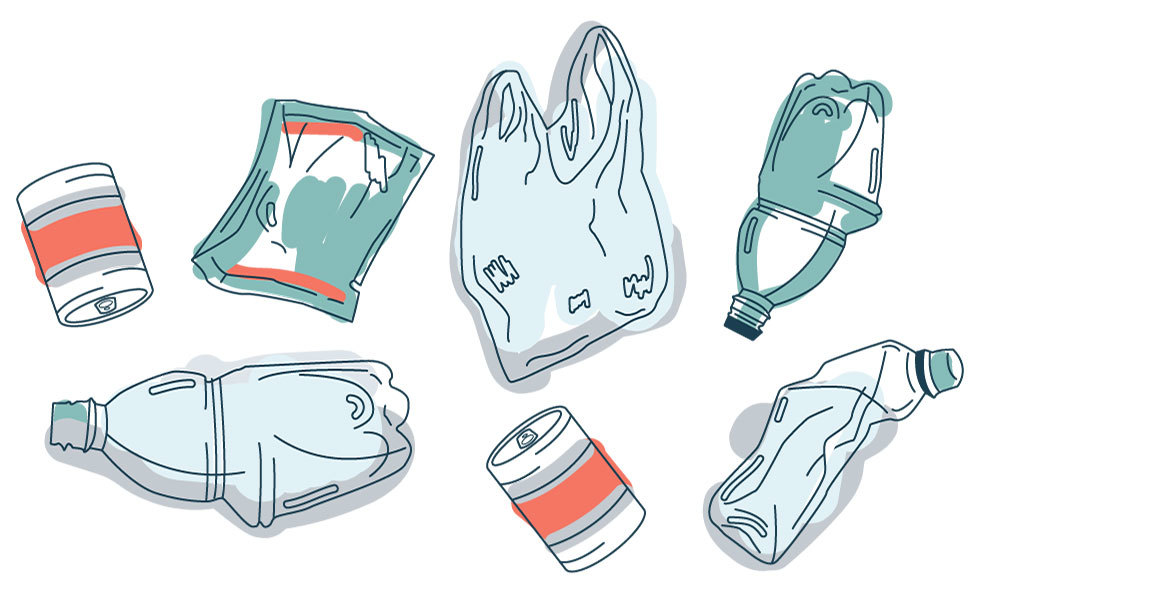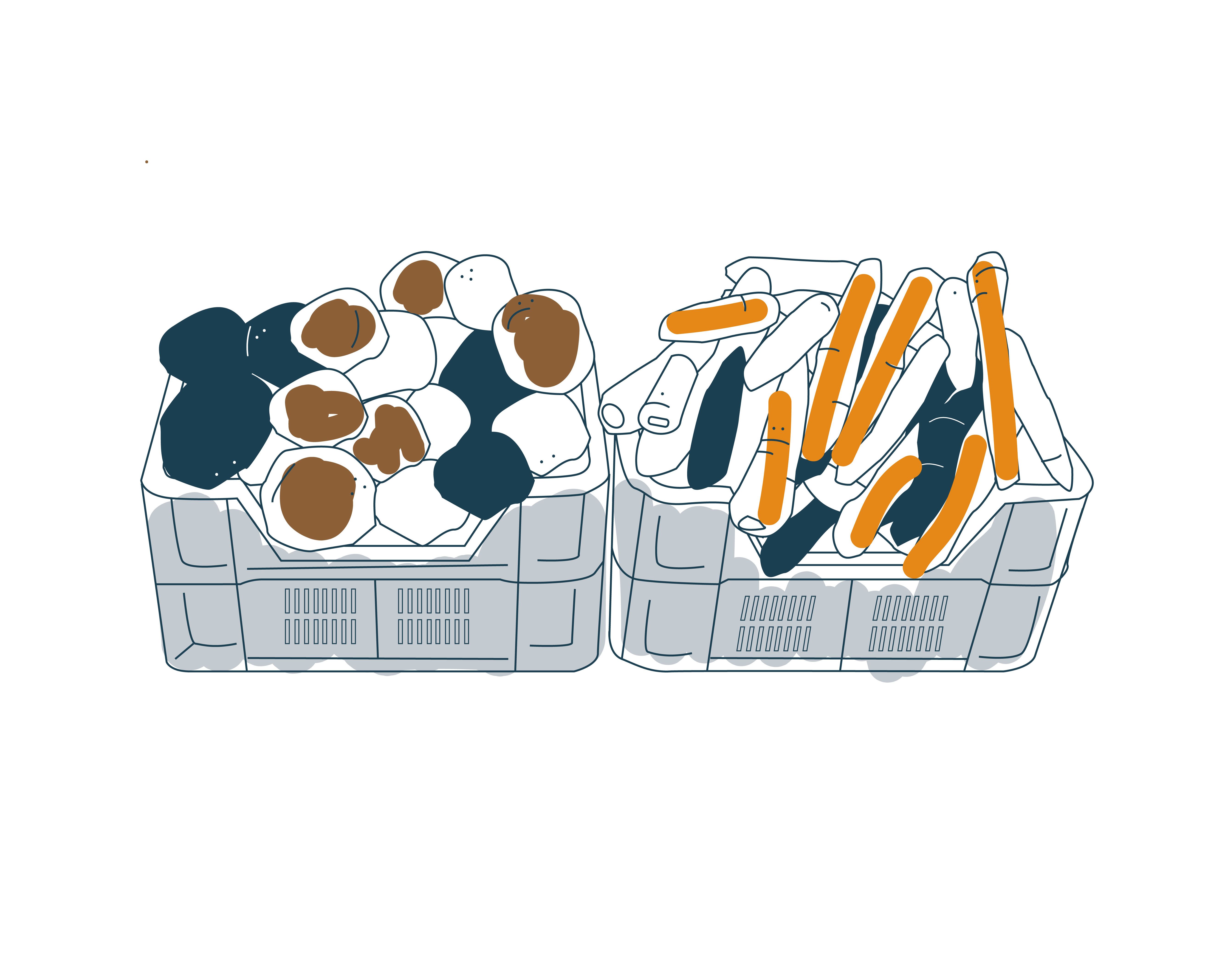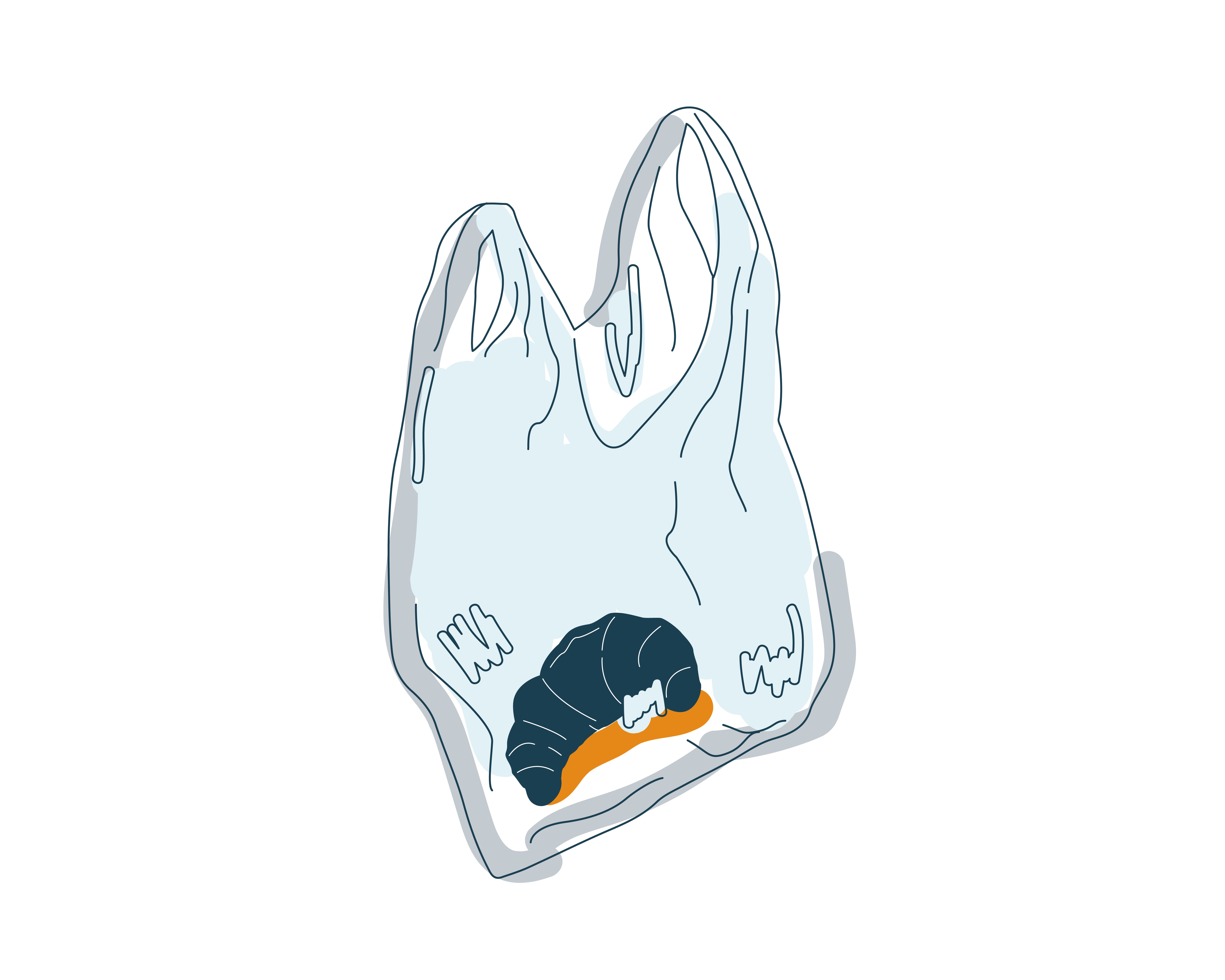Have we failed miserably or gained a valuable insight? Week 4

Students Katy Barnard and Yes de Jong are reaching the end of their month-long zero-waste experience.
As we conclude our last week of a month-long of zero-waste, we start understanding our relations towards food and waste better. Although we have come to find creative alternatives to waste, we have to wonder at this point whether this lifestyle is even attainable. This was week four.
Katy: It’s time to find my realistic sustainable lifestyle.

To be honest, once I got a taste of the culture of convenience while traveling last week, it was quite hard to go back to a completely zero-waste lifestyle. During this week, I resorted to partially waste-free living. I took this time to find the right balance for myself. I knew from the beginning of this challenge that I would not adopt this lifestyle forever, but instead try it out and take from it what I wanted. I wholeheartedly believe that this is the way to start change: small steps by many people.
Maybe changing the vocabulary to “waste-conscious lifestyle” would make the movement more inclusive.
There is so much pressure to go all in to make an impact. But small changes are worth something too. If everyone made one sustainably-minded choice a day, it would make a huge difference. A full zero-waste lifestyle is not an option for most people. I thought about how maybe changing the vocabulary to “waste-conscious lifestyle” would make the movement more inclusive and attainable.
This week, I found myself back at my usual grocery store but now choosing to buy olive oil in a glass jar, back to buying plastic-packaged veggie burgers again but filling my reusable produce bags with loose apples and bananas. Though it hurts to buy plastic again, I am finding my own waste-conscious lifestyle in a system that doesn’t yet support it.
I now pledge to not buy any unnecessarily packaged items and choose the non-plastic option over the plastic one, if possible. And, I will no longer buy prepackaged meals, unless I have to. I found a grocery store nearby that sells yogurt in a glass jar. I can find loose fruits and vegetables at the outdoor markets where I can use my reusable bags to fill. And, I will go to the bulk stores for things like rice, lentils and oats when I have the time. But, I will buy cheese, pasta, chips and chocolate again. This is my realistic goal.

Yes: I still have NO CLUE what 100 grams of cheese looks like.
It was extremely difficult to go back after a week of luxurious, wasteful food. On free days, I've avoided supermarkets as much as I could. The only shops I visited were my local food market and the Turkish shop to buy bread, fresh herbs, unpacked veggies and canned goods.
The local market has a cheese stand but it is more expensive and I still have NO CLUE what 100 grams of cheese looks like. The whole experience becomes scary and the goodie quite expensive. I found out that they also sell butter, another good I have been craving.
I can get fruits and vegetables for very cheap. For one euro, I can get 1kg of all sorts of vegetables like tomatoes, paprikas, and fruits like melons, lemons, and apples. This place has become heaven to me, and I have been finding it relaxing to stroll around a market instead of the big space with artificial lights and self-checkout machines. I see other people, and make myself more approachable, feel more open and optimistic towards life.
When I’m rushing, my lunch consists of oranges, pears, cucumber, bananas, apples.. where usually it would be a nutbar wrapped in plastic. I tried to compensate for my cheated meals by buying loose tea. I was so hungry for a snack one day that I ended up buying liquorice. I really was craving it for weeks.
This seriously makes me question my determination and if this goal is at all possible in a society that is designed for comfort.
The need for sweets is bigger than ever and I cheated every single day, getting myself a sweet snack with packaging or buying creamy cheeses. I even bought a bag of crisps out of desperation, despite usually disliking them. This seriously makes me question my determination and if this goal is at all possible in a society that is designed for comfort.
If I want to pursue this lifestyle, I need to take control over my food-as-reward complex. I still haven’t found a shop that sells plain chocolate without packaging. Everything becomes a luxury product.
I've noticed that I've been eating more white bread, pastries and fruits, as this was literally the only thing that I could get waste-free at the supermarket. As I checked out another croissant at the register, the cashier told me she liked my bag that I had embroidered my name on. It made me feel better.
--
Note: For this experience, Yes and Katy have set out strict ground-rules: use of own reusable containers as much as possible; no plastic packaging at all (if you have to, must reuse twice); glass is allowed and preferred; cans are allowed if glass is not available; paper packaging is tolerated but preferably not. The no-waste month took place pre-quarantine times, in February.
All illustrations by Yes de Jong

